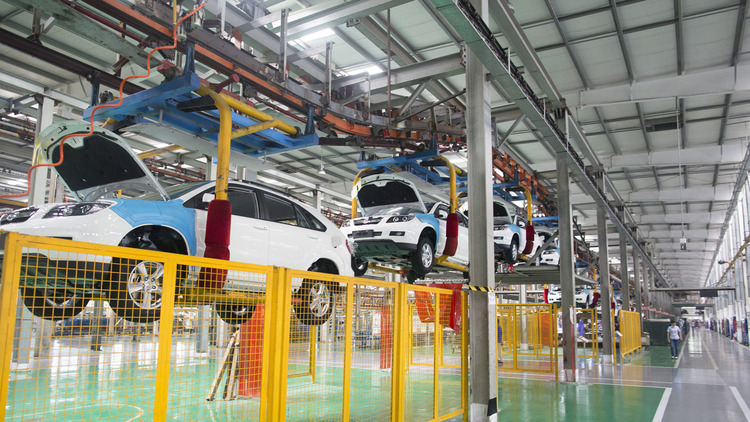- Hurricane Harvey, Irma: Impact on Nigerian Auto Industry
Within the last days of August and the early days of September 2017, the world held its breath as violent tropical storm named Hurricane Harvey and Irma wreaked havoc across Eastern Texas in United States of America as well as North Eastern Caribbean and Some parts of Florida.
Hurricane Harvey was an extremely destructive Atlantic hurricane. In a four-day period, many areas received more than 40 inches of rain as the system meandered over eastern Texas and adjacent waters, causing catastrophic flooding.
You may be wondering, what has this to do to with the automotive industry in Nigeria?
Hurricane Harvey destroyed hundreds of thousands of houses, billions of dollars-worth of property including an estimated 40 lives. But the one that has direct impact on Nigeria is the hundreds of thousands of vehicles damaged by the flood.
According to Fortune magazine, over 100,000 insurance claims for cars impacted by Harvey have already been filed, with the number of claims expected to rise. Others estimate that Harvey has destroyed up to five times more.
For instance, Cox Automotive chief economist Jonathan Smoke told USA Today he believes 300,000 to 500,000 vehicles were destroyed by Harvey’s path. This has serious implications for Nigeria’s automotive industry.
Nigeria’s auto industry depends on imports from overseas. More than 70% of these vehicle imports, according to Nigeria Bureau of Statistics, comes from United States of America.
In 2016, 450,000 vehicles were imported into Nigeria from US, according US Census Bureau. However, one important thing to note about these statistics is that more than 70% of these imports are used cars, also known as Tokunbo, according to Nigeria’s professional services firm, Pricewaterhouse Cooper, PwC in a report released recently.
According to PwC, American Specs, Toyota and Honda dominate the Tokunbo car market in Nigeria as they satisfy the criteria of price, durability and resale value.
The fear of Hurricane Harvey vehicles finding their way into Nigeria is more so because, Texas, the main spot of the Hurricane Harvey, hosts a huge percentage of Nigerian Americans, most of them relying on businesses of used vehicle export to their home country. Statistics shows that the city of Houston, Fort Bend, Tarrant, Dallas, and Travis counties have some of the largest Nigerian population in America.
This is in addition to the fact that the Houston port tops the list of shipping ports in the US for shipping of cars that cannot move.
So, it will not be entirely surprising to start seeing some of the flood-damaged vehicles entering Nigeria before the end of this month and unsuspecting buyers may find themselves assuming the liability of owning one of them.
But flood-damaged cars are not only dangerous to the environment, they can also cost more than money.
“In today’s hi-tech vehicles, a car submerged in flood does not only compromise its engine, both electrical and electronic systems are also destroyed. This is besides the corrosion that would have started affecting the body,” said Chinedu Okwuosa, Director Operations at Cars45.com.
“Just imagine what will happen after you have subjected such vehicle to the Nigeria terrain with all the bad roads and hot weather condition,” he added.
At best, some of these vehicles should be classified as totaled and sold as scraps, yet some businessmen could become unscrupulous and pass on these flood-damaged cars as clean titled Vehicles
However, if you are looking to buy a tokunbo vehicle within this period or the next couple of months, here are a few things that can help you spot the ones damaged by flood:
Speak To The Dealer: A good place to start is getting a reputable dealer. A dealer that has formidable reputation will not risk it to rip his customer off. Ask the dealer if the car you are eyeing is flood-damaged. Any answer that is not a firm ‘No’ should be of concern to you.
Check The Title: You may also ask to look at the title. In that way, you may be able to know if the car is coming from a region affected by flood.
Check The Smell: Experts note that the quickest way to sniff out whether or not a car has flood damage is to literally sniff it.
It’s very difficult to completely rid a flood-damaged car of its moldy aroma, and mildew formation is a sure sign that the car was exposed to significant amounts of water.
This unpleasant smell is a helpful clue for prospective buyers.
Look Out For Rust: The time it takes to export the car from America to Nigeria would have been enough for some parts of the car to start rusting. If you go to buy the car with an experienced inspector, it should not be hard to spot the emerging corrosion.
But to really play safe, this piece of advice from CEO of Cars45, Etop Ikpe might be worthy of consideration. Ikpe says, “If you plan to buy a Tokunbo car within this period, you may want to reconsider your decision.”
“In fact, this is the best time to buy registered vehicle. It may be far safer than your shiny tokunbo,” he said.
This, according to him is because, “all too often, such vehicles get, at best, cosmetic repairs that mask, rather than resolve, longer-term issues, such as rust, mold, and mechanical problems that could plague buyers later-on”.


 Naira4 weeks ago
Naira4 weeks ago
 Billionaire Watch4 weeks ago
Billionaire Watch4 weeks ago



 Naira4 weeks ago
Naira4 weeks ago






 Naira4 weeks ago
Naira4 weeks ago


 Naira3 weeks ago
Naira3 weeks ago






 Naira3 weeks ago
Naira3 weeks ago
 Economy4 weeks ago
Economy4 weeks ago


 Naira3 weeks ago
Naira3 weeks ago





















